- Home
- Heather Graham
Heather Graham's Haunted Treasures Page 24
Heather Graham's Haunted Treasures Read online
Page 24
A tension suddenly seized her. "What happened to the princess?" she asked.
"What?"
"The princess. Illora. In your fine family tale. What happened to the princess? I understand that he died. What of her?"
"Ah, well," he said with a shrug. "It was hundreds of years ago. She died, of course."
"But how, when? You know, don't you?"
"Aye. All right. She died nearly nine months later. She gave birth to the son and heir of the fortress, and passed from this life. Crying out her lover's name."
"You do embellish, I am certain. Good night," she said determinedly.
She was certain she heard his laughter as she hurried up the stairs.
When she would have turned to her bedchamber, she paused once again, wondering why the hall and the pictures and portraits had so disturbed her before.
She walked in among them. She looked from painting to painting.
Then she halted.
She went back to the battle scene. The one in which another blond Eric MacCannan had led his forces into war, his sword flying, his passion so great that it could almost be felt from the canvas.
Only... no more.
It was just a painting now. The man leading the charge was scarcely visible.
The life had gone out of the painting, so it seemed. She walked backward, questioning her sanity in truth. Then she looked at the painting of Ulhric the Viking.
And she started to shiver.
It, too, seemed to have changed.
A handsome man was still portrayed, but he was different. He no longer seemed to look on her with burning blue eyes.
Again, the passion, the very life force, seemed to be gone.
"Nay!" she cried out softly.
Illora. She needed to see the painting of Illora.
Nay, nay, not this night! No more dreams, she could not bear the dreams!
She turned to flee the gallery. She took the steps two at a time to her room and slammed the door behind her. She bolted it.
Then she began to laugh and cry, and sank down beside it. A bolt meant nothing to a man, to a lover, who came in a dream.
"Nay, no more dreams!" she cried aloud.
And then she realized that, merciful God, she would have no more dreams that night.
The sun was rising in the eastern sky.
Chapter 5
Marina was in the upper hall by midmorning, having spent the early morning hours trying to make up for her lack of sleep in the night by finding some rest in the daylight, but it was difficult even then to sleep when she was so very determined not to dream.
By ten, though, Peg had come to warn her that a number of the MacCannan men were waiting to see her in the upper hall. She attended some of them there. It was the chieftains that the British wanted, she knew, but few of the men who stood sorrowfully before her then were chieftains. They were farmers who had sprung up with the excitement to do battle at Culloden, and now they were sorely afraid. They were anxious to take their chances in the New World, having heard that there was a ship leaving the countryside soon, and that the captain was asking few questions of the men who were ready to sign on. She listened to them all, reminded them that the English were not anxious to hang farmers, but gave them her blessing when they seemed determined to go.
Angus was with her then, and as the men filed out, she found his eyes on her, heavy and sad.
"What would you have me do? Command them to stay?"
He shook his head. "Nay, lass. But ye must do something, and soon. It seems as though ye wish no more to do with the Cameron, and as he saw fit to attack us, demanding an answer, I'd not be inclined to give him the time of day, much less the hand of the MacCannan in marriage. That leaves the MacNamara, or..."
"I've heard. This Eric MacCannan."
Angus shrugged. "Well, lass, ye did ask fer a fellow with a full set of teeth, ye know."
Was she doomed to pay forever for her foolish comments? She sighed softly.
"What are our losses, Angus, from the battle waged with the Camerons?"
"Thirteen wounded, and all have survived the first night, though young Neall was bashed severely in the head and faces a grievous fever now."
Still... no losses. Yet thirteen men who could not fight when the English came against them.
"Ye must decide, Marina," Angus warned her.
She nodded. "By tonight, Angus," she promised him. "This morning, I think that I will ride."
Angus must have told Kevin her intent, for her cousin was awaiting her down by the stables. "I'll accompany ye, Marina."
"Nay, Kevin, I've a wish to ride alone today." She smiled. "To survey my domain."
His frown assured her that he worried for her safety. "I'll not leave the isle," she promised.
She didn't know if he was relieved or not, but she didn't care. She simply wanted to be alone.
The groom brought her the same small bay that she had ridden into battle, and Marina was glad of it; she was coming to know the mare. She left the ancient tower behind her and started to race across the open fields that faced the mainland straits, then turned westward and finally began to climb the cliffs and jags that faced toward the Irish Sea.
She had slowed her frantic pace, of course, for she could not run the bay here lest she break the horse's slim legs. But the bay was from local stock,; she was surefooted and accustomed to the rugged landscape, and so they quickly climbed the rock until they were on a precipice, looking far down to the sea.
It was beautiful here. Wild, barren, with heather growing in sparse clumps from cracks in the rocks. The wind seemed stronger here, it seemed to whistle, and the sea today was dark and deadly and dangerous, and as tempestuous as her mood.
The urge to walk the beach struck her, and she lifted her reins, prodding her small mare to take her down the rock to the cliffs and the stretch of beach beneath. When she had arrived on the narrow border of sand, she dismounted and left the mare to chew on the weeds that grew by the rock. She started to strip off her shoes and stockings when she noticed an old woman in a long black dress and a black shawl wandering the sands nearby. She finished with her task, feeling the sand beneath her toes, then rose and wandered to the water line.
The woman came closer and closer.
She seemed ancient, with flesh like wrinkled leather. Her black shawl covered incredibly thin strands of gray and pure white hair, and she stooped as she walked, as if weighed down by the years. All that seemed young in her were her eyes. They were gold eyes, not brown or green but gold, and they were sharp as a blade as they studied Marina.
"So ye're the MacCannan come home, all growed up."
"I am Marina MacCannan," she told the woman.
The woman smiled, a toothless smile. She clutched Marina's arm. "And ye'll stay, and it'll be all right. This time. The fields will grow rich, fer ye'll know now, ye'll take heed, ye'll take care."
Marina shook her head, growing alarmed at the woman's desperation. "I've come home, aye. I'll not be going anywhere—"
"Ye'll marry him! But that canna be all, y. Ye must listen to me!" For a stooped old thing, she had tremendous strength. She swirled Marina around, and her fingers seemed to dig into her arms. "Treachery come from within, Mora; when will ye learn?"
Marina freed herself, her teeth chattering. This was an old crazy woman, she told herself. She had to be kind but firm.
"Listen to me, please," she said and clutched the old woman's wrists lest she try to take hold of her again. "I am Marina MacCannan. My name is Marina. But I will stay here. Things will be well. You mustn't worry. The English will not hurt you."
The woman looked at her as if she were the crazy one. Then she broke away.
Heedless of the cold waves against her feet and ankles, she walked out into the water. "'Twas from here that they set sail to the bier. But it would not burn. For it was said on that very day that he would return. Why, 'tis on Illora's tombstone. 'He will come again, this lion among men, and stay when love mee
t him, not die if love will greet him.'"
"That's, er, lovely," Marina said. Could she leave this daft old woman here alone? Would she drown herself if Marina did so?
The woman spun around. It seemed that she moved in slow motion. That her black cape took flight around her like the wings of a giant raven. Water flew from the long hems of her sleeves and shawls, catching the sunlight in magical droplets.
"Nay, listen to me, lady, heed the warning this time! Fer he has come afore, yet the treachery made mockery of love. Ye must take the blow, lady, ye must take the blow. Know that it is coming, and do not let him perish again! 'Tis up to ye, Illora, 'tis up to ye!"
"I am not Illora—"
"Cuimhnich!" the old woman shouted. For a moment, Marina did not understand her. Then she recognized the word. Cuimhnich. It was Gaelic for "remember."
Then the old woman turned away and started running toward the cliffs that curved inward from the horizon.
"Wait!" Marina called to her.
But for a hunched-over old woman, she moved extremely well. It seemed that she raised her black shawl, and, almost like the giant raven she resembled, took flight across the sea and land. Marina ran to catch up with her, but she could not.
Exasperated, weary, panting, she wandered back across the sands. She looked up at one of the dunes. A man there sat on a horse. A huge black horse, a war-horse with thighs and flanks as muscled as those of the warrior who sat his back.
Eric. Even at a distance, she could feel the blue of his eyes. Feel their touch on her.
His thighs nudged against the great black horse. The animal walked her way until man and beast were right before her, dwarfing her.
She stared up at him, suddenly very tired and very confused. He had appeared from nowhere. Had he stepped down from a painting? Or had he returned from the dead, as a prophecy had promised?
Had he come before, riding in his clan colors at the head of an army when the forces turned against Queen Mary and came here to battle MacCannans then?
She was losing her mind. And to think of it, she could have remained safely back in France rather than coming here where the clans fought one another just as swiftly as they fought any alien foe.
Back in France...
His eyes touched hers. The warmth spread through her. Nay, she could not be back in France. She knew why she had not married the marquis. She had liked him, aye. But she had never felt this. Never known this fever, this excitement, just because a man's eyes fell on her. She had never wanted to touch a man as she wanted to touch this one. She had never felt the passion, the fever... the need to be wildly, wickedly loved; to be held and treasured and caressed.
Taken, as a ghost lover touched her in her dreams.
Nay, nay, this cannot be, she assured herself quickly. He is not the Viking laird returned, for I am assuredly not his Mora!
Nor had he come to speak to her of love. "The British have gathered on the mainland, in some few miles. They'll take their stand against us this day," he said.
She gasped, coming nearer, taking hold of his saddle as she looked up at him in dismay.
"So soon? I thought there was time—"
"You need no time, Marina. I've come to tell you, I will lead your army. And I've come to demand you, too. Marry me, Marina."
Command, indeed! "But the battle—"
He pulled back on the reins, and his great black war-horse moved away from her touch. "Be it then as you wish, Marina MacCannan. I'll fight the battle again. And I'll take the prize as I see fit."
Fury instantly rose within her, but with it, a rich flood of excitement. Aye, let him win, let him have what he would. She did not know what she was fighting.
"My dear sir—"
"My dear lady! I could be tender, I could be coercive. I could demand that you marry me because you do love me, but perhaps I cannot convince you yet that it is so. I can command that you marry me, for I will be the victor; I will prevail. Then, too, I can suggest that you wed me because I have all my teeth, and all my hair, and my limbs are sound and strong. It will not matter. I will return tonight. The threat to you, and to the isle, will be done with, and this night, lady, you will lie with me!"
"How dare you—" she began, hands on her hips, her temper flying. But he meant to have none of it. The great black reared and turned, and soon the sand was flying beneath its feet.
And he was gone.
The battle, the big battle, was nearly joined. They would make their stand. They would find peace, or the clan would be decimated.
And he would lead...
She moistened her lips, fearful of the longing, the shivering that began within her. He seemed determined that he would have her that night...
A slow smile touched her lips.
He did have all his teeth, and all his hair.
And, indeed, he was sound in limb and body!
Marina turned, forgetting her shoes and stockings, and raced along the shore to her bay. She leaped astride the mare and gave the horse free rein to hurry her back to the fortress with all speed.
She returned to the courtyard just as the men were preparing to march out again. She rode into the middle of them, her hand raised high in salute, a cry on her lips. She rode to the very entrance of the fortress, knowing that she would find Peg there with the stirrup cup of wine to be offered to the leader of the forces.
Marina leaped down and took the tray from Peg with a nod of silent thanks, then made her way through the horses with their riders to the very front of the ranks. She passed by Kevin, and by Angus, and proceeded onward. "Laird Eric!" she cried.
His eyes fell on hers, yet betrayed no emotion. He was a warrior, prepared for his battle now.
She offered up the cup. "Godspeed, sir!"
He took the wine. She thought that a small smile played on his lips. He drank the wine, then raised himself up in his saddle, his great sword swinging.
"Cuimhnich!" he cried out.
And en masse, the great horses began to move, and in seconds, there was a thunder that seemed to split apart the land as they galloped onward.
Marina stood alone where so very many had been. Cuimhnich...
Gentle hands touched her shoulders. Peg was there. "Come in, lady, now, come in. Ye're wanderin' round with no shoes upon yer feet, and ye'll catch yer death."
Marina didn't move. She stared after the riders.
"There's naught we can do here, lass. Naught at all. Messengers will come. The guards will keep sight on the horizon, and keep shelter on the fortress itself. Come in."
Marina went with her. She climbed to her chamber high up in the fortress, and she put on new stockings and shoes. Restlessly, she wandered back down to the main hall, but it was so empty. She went back up to the second-story hall and wandered along the paintings and portraits.
Today they told her nothing. They were just as they had been the night before. Paintings. Color on canvas.
She stared at the Eric MacCannan who had come in the time of Mary. Take away the beard, and...
She felt a presence behind her. Peg, come after her to see that she was all right, she was certain. "What happened to him, I wonder?" she said aloud. "Did he rule wisely and long? Did he die an old man, with a full score of grandchildren about his feet?"
"Eric MacCannan?" Peg said softly. "Nay, lass, he did not. Why, he was stabbed in his bedchamber in the middle of the night, and died in the mommorn. 'Twas said that the blow was intended for his lady, for she was the heiress in truth, if legend serves. But he couldna' let her die, ye see."
Cold—severe, eerie, icy—swept down her spine. "Like Ulhric the Viking," she said. And her voice grew bitter with the fear that raced through her. "And I'm sure that he rode against his enemy, bleeding though he was. And that he bested his enemy. But he died. And his wife bore a single child. And she died, too. And perhaps he was Ulhric come back."
"Ah, legend. Stuff and legend." Peg sniffed. She was quiet then. Marina did not turn. She swallowed hard. She walked dow
n the gallery to the painting of Illora.
Surely it had been done at a later date. The artist must have guessed at the way Illora had looked.
But she had been a woman with emerald-green eyes, with long blond hair flowing down her back. And her head was bowed in the greatest sorrow...
Go to the tomb, Marina. Go to the tomb.
"The men are at war!" Marina protested. "I must await every word. And there is good reason to expect that I may be called to meet with the English general, if all goes well and peace is to be made. I cannot go running around believing in legends and tales—"
She broke off, for she was alone in the room. Peg was not with her.
The chills that assailed her then were awful. She couldn't bear being in the gallery a second longer. With a startled cry, she tore down the length of it.
She did not pause until she had run down the stairs, and come to the great hall beneath.
"Peg!" she called, her hands gripped by her sides.
From the pathway to the kitchens, Peg ran out.
"Where is it?" Marina demanded.
"Where is what?" Peg asked, mystified.
"The tomb. Mora's tomb."
Peg frowned, wiping her hands on her apron. "Why, 'tis in the cliffs by the sea. Down by the strip of beach that looks outward toward Eire."
Marina swung around. She was going riding again. Peg followed after her quickly. "Where are ye goin', lass? Ye must stay now, ye must listen fer the messengers, ye must be ready to meet with the Englishmen."
"That's exactly what I just told you," Marina snapped, and ignoring Peg, she hurried out.
Behind her, Peg frowned more deeply, terribly concerned. "Ye didna tell me a thing, lass, not a thing," she said, but she spoke to herself.
Marina made it back to the cliffs, climbed the rocks and shale on her bay mare, and trekked down toward seaside once again. She dismounted and led the bay until she came to the connecting maze of cliffs and caves. She had come here often enough as a child. She and Kevin had played here. She should have remembered the tomb. Someone in the family had always cared for it. The ancient rock had been protected. The inscription had been rechiseled time and time again.

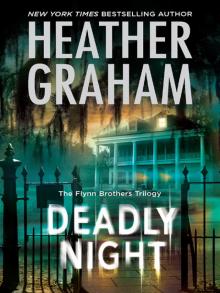 Deadly Night
Deadly Night The Uninvited
The Uninvited Dust to Dust
Dust to Dust Heart of Evil
Heart of Evil A Perfect Obsession
A Perfect Obsession The Keepers
The Keepers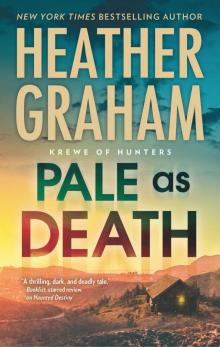 Pale as Death
Pale as Death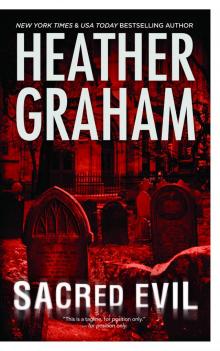 Phantom Evil
Phantom Evil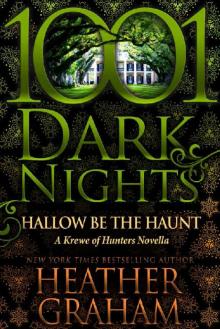 Hallow Be the Haunt
Hallow Be the Haunt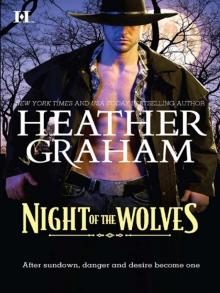 Night of the Wolves
Night of the Wolves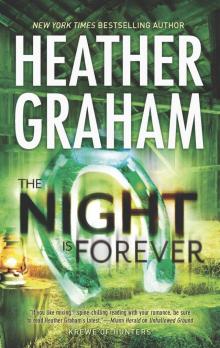 The Night Is Forever
The Night Is Forever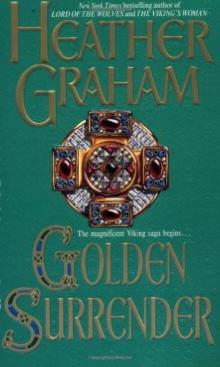 Golden Surrender
Golden Surrender Kiss of Darkness
Kiss of Darkness Beneath a Blood Red Moon
Beneath a Blood Red Moon A Dangerous Game
A Dangerous Game Ghost Shadow
Ghost Shadow Long, Lean, and Lethal
Long, Lean, and Lethal Fade to Black
Fade to Black The Rising
The Rising And One Wore Gray
And One Wore Gray Rebel
Rebel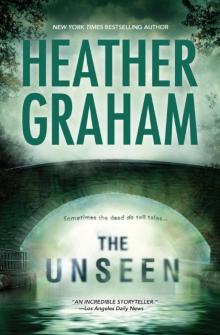 The Unseen
The Unseen The Night Is Watching
The Night Is Watching The Evil Inside
The Evil Inside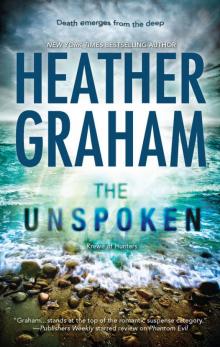 The Unspoken
The Unspoken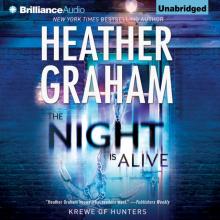 The Night Is Alive
The Night Is Alive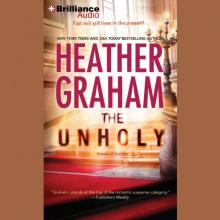 The Unholy
The Unholy Nightwalker
Nightwalker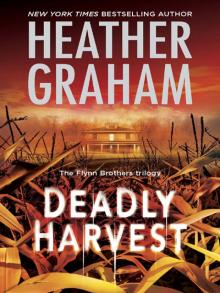 Deadly Harvest
Deadly Harvest An Angel for Christmas
An Angel for Christmas A Pirate's Pleasure
A Pirate's Pleasure American Drifter
American Drifter Realm of Shadows
Realm of Shadows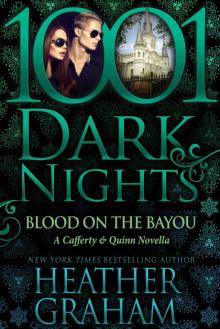 Blood on the Bayou
Blood on the Bayou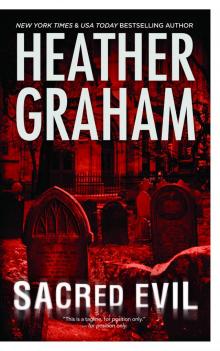 Sacred Evil
Sacred Evil Dying to Have Her
Dying to Have Her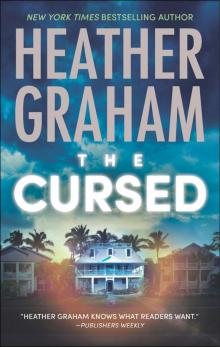 The Cursed
The Cursed Captive
Captive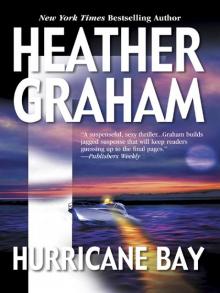 Hurricane Bay
Hurricane Bay Drop Dead Gorgeous
Drop Dead Gorgeous Ghost Memories
Ghost Memories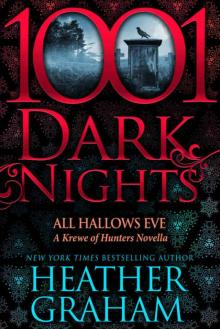 All Hallows Eve
All Hallows Eve Dying Breath
Dying Breath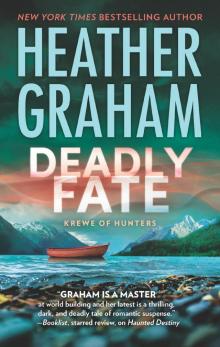 Deadly Fate
Deadly Fate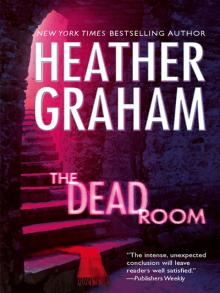 The Dead Room
The Dead Room Lord of the Wolves
Lord of the Wolves Ghost Night
Ghost Night Ghost Walk
Ghost Walk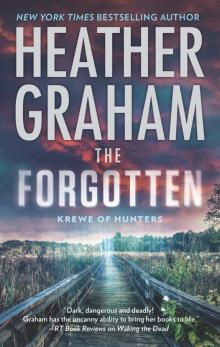 The Forgotten
The Forgotten Unhallowed Ground
Unhallowed Ground One Wore Blue
One Wore Blue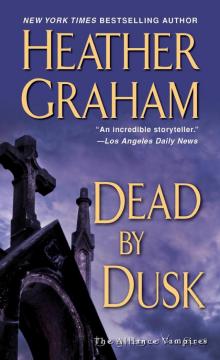 Dead By Dusk
Dead By Dusk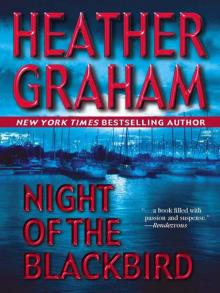 Night of the Blackbird
Night of the Blackbird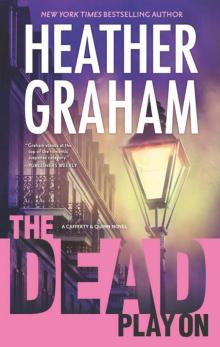 The Dead Play On
The Dead Play On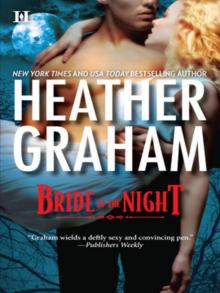 Bride of the Night
Bride of the Night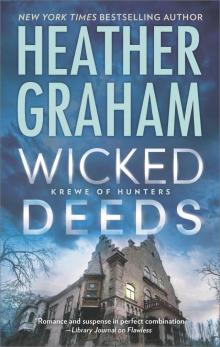 Wicked Deeds
Wicked Deeds The Forbidden
The Forbidden Triumph
Triumph Out of the Darkness
Out of the Darkness Love Not a Rebel
Love Not a Rebel The Last Noel
The Last Noel Tall, Dark, and Deadly
Tall, Dark, and Deadly The Death Dealer
The Death Dealer Dead on the Dance Floor
Dead on the Dance Floor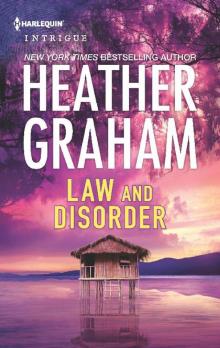 Law and Disorder
Law and Disorder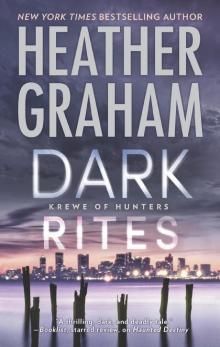 Dark Rites
Dark Rites New Year's Eve
New Year's Eve Hostage At Crystal Manor
Hostage At Crystal Manor And One Rode West
And One Rode West Home in Time for Christmas
Home in Time for Christmas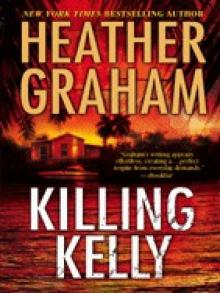 Killing Kelly
Killing Kelly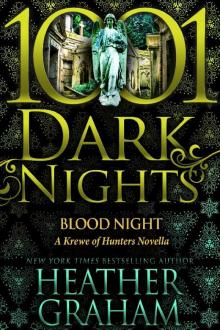 Blood Night
Blood Night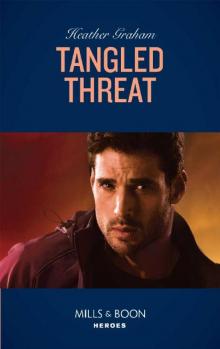 Tangled Threat (Mills & Boon Heroes)
Tangled Threat (Mills & Boon Heroes)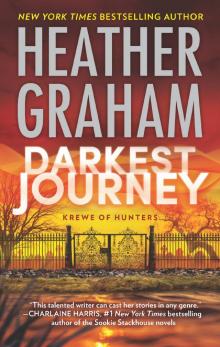 Darkest Journey
Darkest Journey Glory
Glory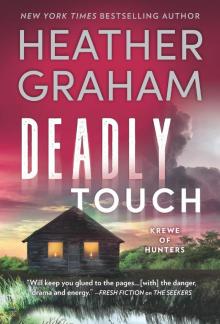 Deadly Touch
Deadly Touch An Unexpected Guest
An Unexpected Guest Night of the Vampires
Night of the Vampires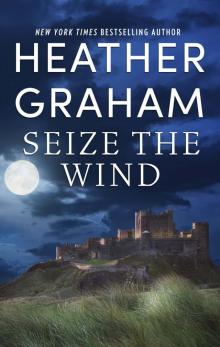 Seize the Wind
Seize the Wind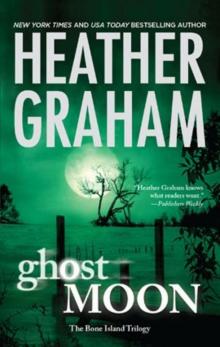 Ghost Moon
Ghost Moon The Vision
The Vision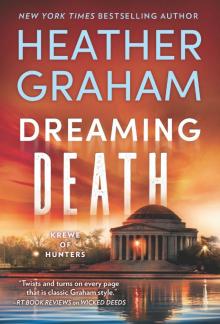 Dreaming Death
Dreaming Death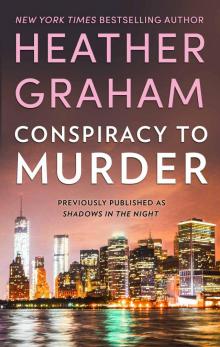 Conspiracy to Murder
Conspiracy to Murder Horror-Ween (Krewe of Hunters)
Horror-Ween (Krewe of Hunters)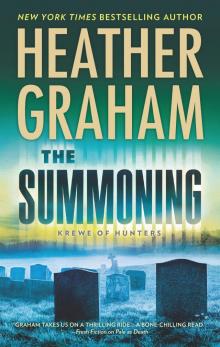 The Summoning
The Summoning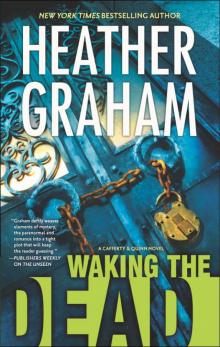 Waking the Dead
Waking the Dead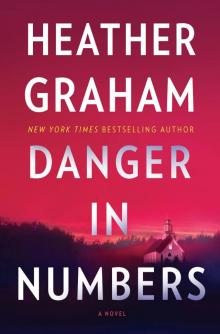 Danger in Numbers
Danger in Numbers The Hidden
The Hidden Sweet Savage Eden
Sweet Savage Eden Tangled Threat ; Suspicious
Tangled Threat ; Suspicious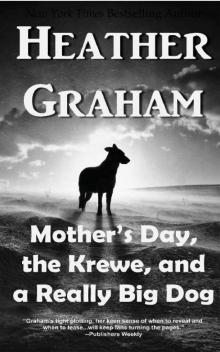 Mother's Day, the Krewe, and a Really Big Dog
Mother's Day, the Krewe, and a Really Big Dog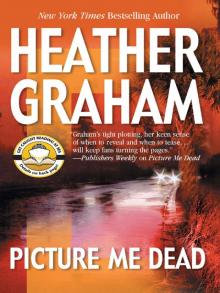 Picture Me Dead
Picture Me Dead The Killing Edge
The Killing Edge St. Patrick's Day
St. Patrick's Day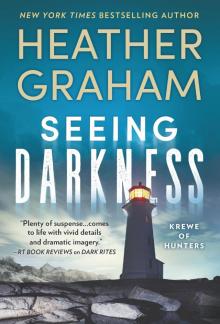 Seeing Darkness
Seeing Darkness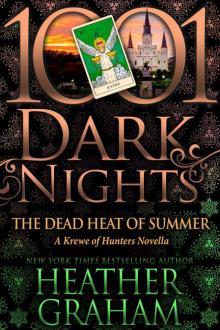 The Dead Heat of Summer: A Krewe of Hunters Novella
The Dead Heat of Summer: A Krewe of Hunters Novella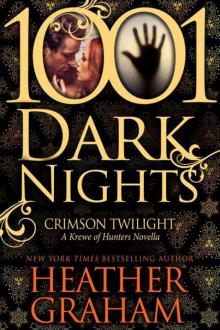 Crimson Twilight
Crimson Twilight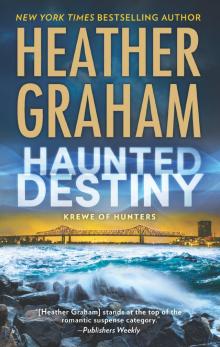 Haunted Destiny
Haunted Destiny Devil's Mistress
Devil's Mistress Banshee
Banshee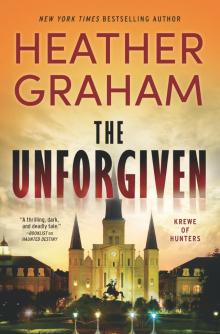 The Unforgiven
The Unforgiven The Final Deception
The Final Deception A Horribly Haunted Halloween
A Horribly Haunted Halloween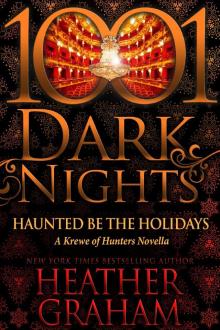 Haunted Be the Holidays
Haunted Be the Holidays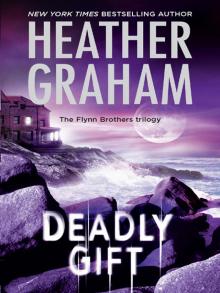 Deadly Gift
Deadly Gift Easter, the Krewe and Another Large White Rabbit
Easter, the Krewe and Another Large White Rabbit Haunted
Haunted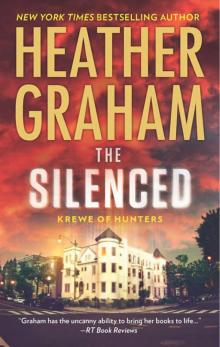 The Silenced
The Silenced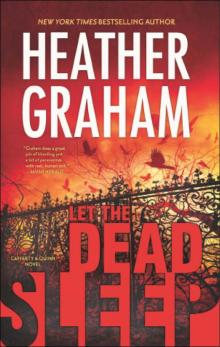 Let the Dead Sleep
Let the Dead Sleep Christmas, the Krewe, and Kenneth
Christmas, the Krewe, and Kenneth Big Easy Evil
Big Easy Evil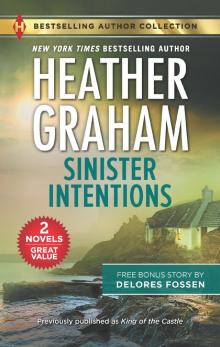 Sinister Intentions & Confiscated Conception
Sinister Intentions & Confiscated Conception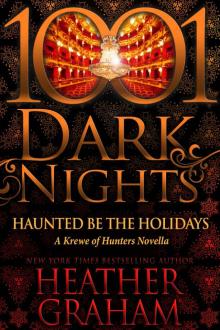 Haunted Be the Holidays: A Krewe of Hunters Novella
Haunted Be the Holidays: A Krewe of Hunters Novella Blood Red
Blood Red A Perilous Eden
A Perilous Eden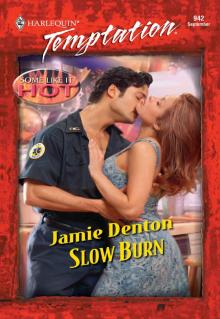 Slow Burn
Slow Burn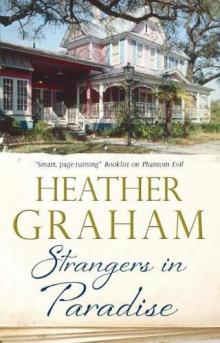 Strangers In Paradise
Strangers In Paradise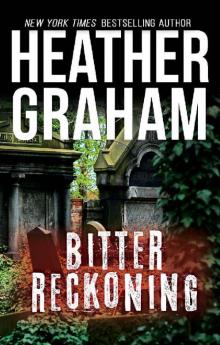 Bitter Reckoning
Bitter Reckoning Krewe of Hunters, Volume 1: Phantom Evil ; Heart of Evil ; Sacred Evil ; The Evil Inside
Krewe of Hunters, Volume 1: Phantom Evil ; Heart of Evil ; Sacred Evil ; The Evil Inside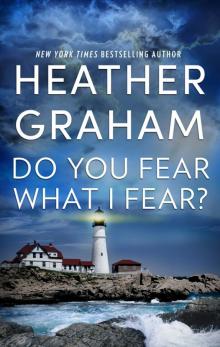 Do You Fear What I Fear?
Do You Fear What I Fear? The Face in the Window
The Face in the Window Krewe of Hunters, Volume 3: The Night Is WatchingThe Night Is AliveThe Night Is Forever
Krewe of Hunters, Volume 3: The Night Is WatchingThe Night Is AliveThe Night Is Forever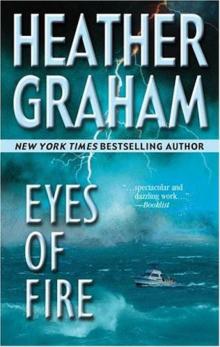 Eyes of Fire
Eyes of Fire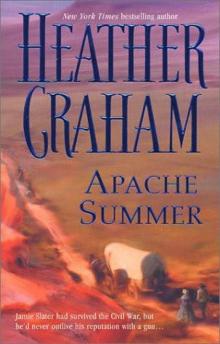 Apache Summer sb-3
Apache Summer sb-3 Sensuous Angel
Sensuous Angel In the Dark
In the Dark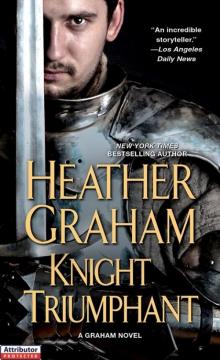 Knight Triumphant
Knight Triumphant Hours to Cherish
Hours to Cherish Tender Deception
Tender Deception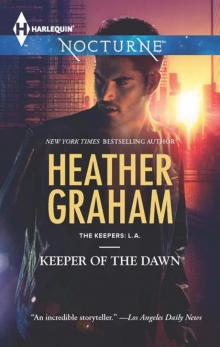 Keeper of the Dawn tkl-4
Keeper of the Dawn tkl-4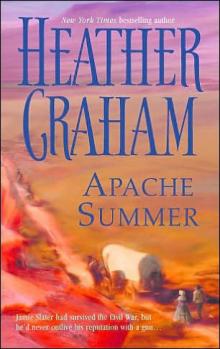 Apache Summer
Apache Summer Between Roc and a Hard Place
Between Roc and a Hard Place Echoes of Evil
Echoes of Evil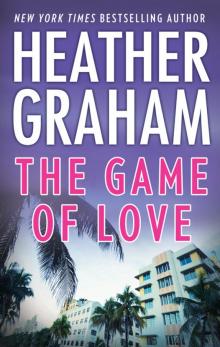 The Game of Love
The Game of Love Sacred Evil (Krewe of Hunters)
Sacred Evil (Krewe of Hunters) Bougainvillea
Bougainvillea Tender Taming
Tender Taming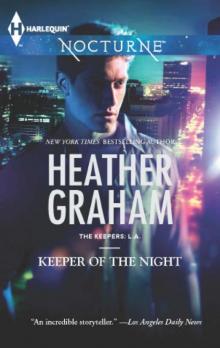 Keeper of the Night (The Keepers: L.A.)
Keeper of the Night (The Keepers: L.A.) Lonesome Rider and Wilde Imaginings
Lonesome Rider and Wilde Imaginings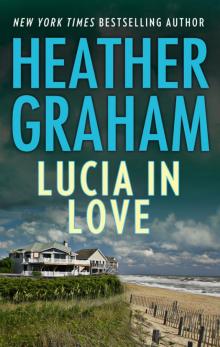 Lucia in Love
Lucia in Love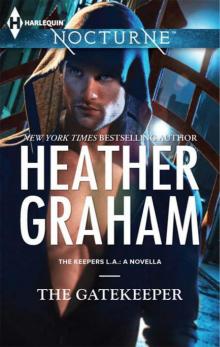 The Gatekeeper
The Gatekeeper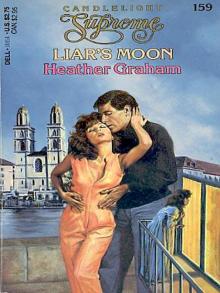 Liar's Moon
Liar's Moon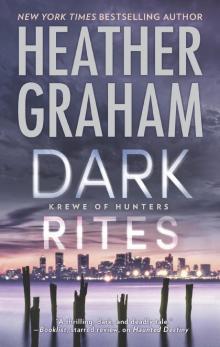 Dark Rites--A Paranormal Romance Novel
Dark Rites--A Paranormal Romance Novel A Season for Love
A Season for Love Krewe of Hunters, Volume 6: Haunted Destiny ; Deadly Fate ; Darkest Journey
Krewe of Hunters, Volume 6: Haunted Destiny ; Deadly Fate ; Darkest Journey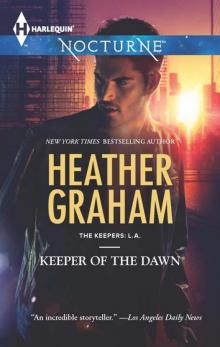 Keeper of the Dawn (The Keepers: L.A.)
Keeper of the Dawn (The Keepers: L.A.)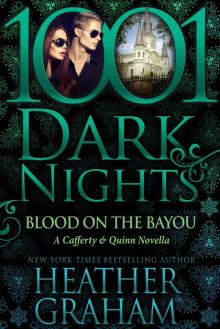 Blood on the Bayou: A Cafferty & Quinn Novella
Blood on the Bayou: A Cafferty & Quinn Novella Double Entendre
Double Entendre A Perfect Obsession--A Novel of Romantic Suspense
A Perfect Obsession--A Novel of Romantic Suspense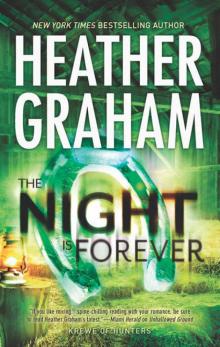 The Night Is Forever koh-11
The Night Is Forever koh-11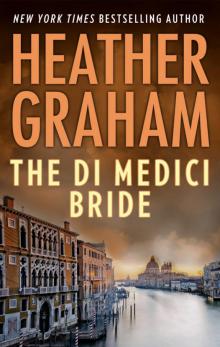 The Di Medici Bride
The Di Medici Bride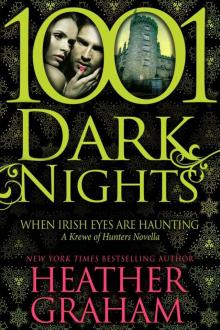 When Irish Eyes Are Haunting: A Krewe of Hunters Novella
When Irish Eyes Are Haunting: A Krewe of Hunters Novella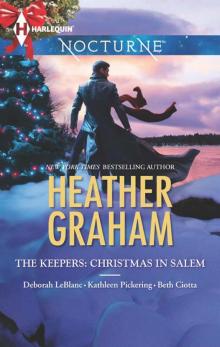 The Keepers: Christmas in Salem: Do You Fear What I Fear?The Fright Before ChristmasUnholy NightStalking in a Winter Wonderland (Harlequin Nocturne)
The Keepers: Christmas in Salem: Do You Fear What I Fear?The Fright Before ChristmasUnholy NightStalking in a Winter Wonderland (Harlequin Nocturne) Never Fear
Never Fear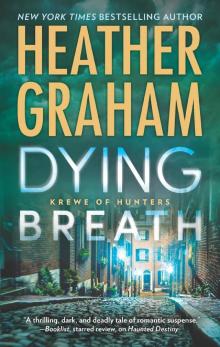 Dying Breath--A Heart-Stopping Novel of Paranormal Romantic Suspense
Dying Breath--A Heart-Stopping Novel of Paranormal Romantic Suspense If Looks Could Kill
If Looks Could Kill This Rough Magic
This Rough Magic Heather Graham's Christmas Treasures
Heather Graham's Christmas Treasures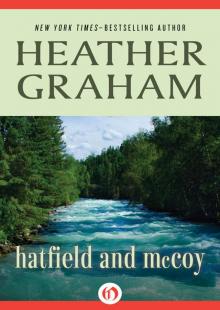 Hatfield and McCoy
Hatfield and McCoy The Trouble with Andrew
The Trouble with Andrew Never Fear - The Tarot: Do You Really Want To Know?
Never Fear - The Tarot: Do You Really Want To Know?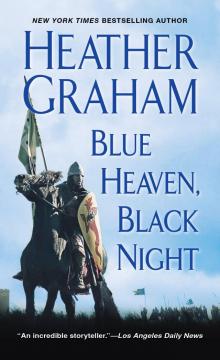 Blue Heaven, Black Night
Blue Heaven, Black Night Forbidden Fire
Forbidden Fire Come the Morning
Come the Morning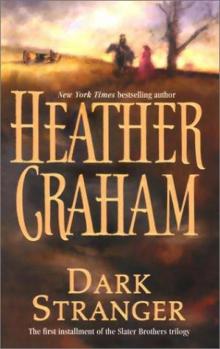 Dark Stranger sb-4
Dark Stranger sb-4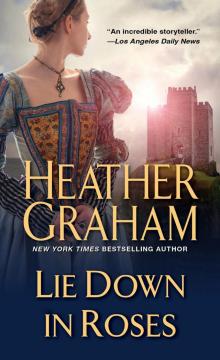 Lie Down in Roses
Lie Down in Roses Red Midnight
Red Midnight Krewe of Hunters Series, Volume 5
Krewe of Hunters Series, Volume 5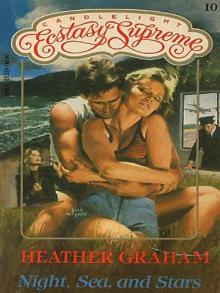 Night, Sea, And Stars
Night, Sea, And Stars Snowfire
Snowfire Quiet Walks the Tiger
Quiet Walks the Tiger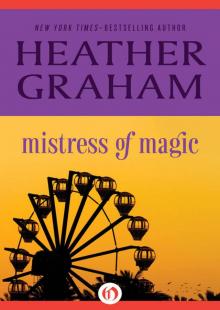 Mistress of Magic
Mistress of Magic For All of Her Life
For All of Her Life Runaway
Runaway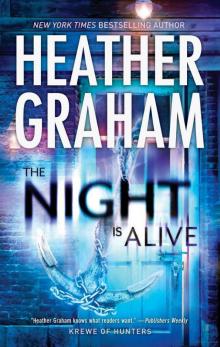 The Night Is Alive koh-10
The Night Is Alive koh-10 The Evil Inside (Krewe of Hunters)
The Evil Inside (Krewe of Hunters)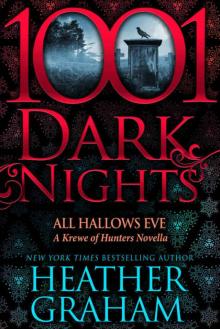 All Hallows Eve: A Krewe of Hunters Novella (1001 Dark Nights)
All Hallows Eve: A Krewe of Hunters Novella (1001 Dark Nights) Tomorrow the Glory
Tomorrow the Glory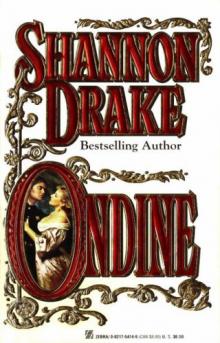 Ondine
Ondine Angel of Mercy & Standoff at Mustang Ridge
Angel of Mercy & Standoff at Mustang Ridge Bride of the Tiger
Bride of the Tiger When Next We Love
When Next We Love Heather Graham Krewe of Hunters Series, Volume 4
Heather Graham Krewe of Hunters Series, Volume 4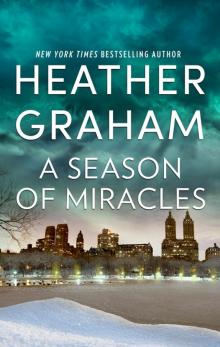 A Season of Miracles
A Season of Miracles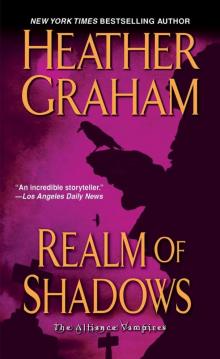 Realm of Shadows (Vampire Alliance)
Realm of Shadows (Vampire Alliance)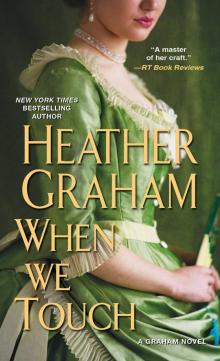 When We Touch
When We Touch Serena's Magic
Serena's Magic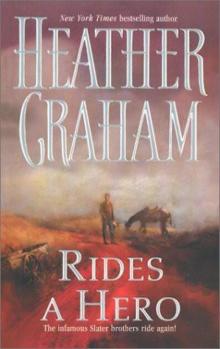 Rides a Hero sb-2
Rides a Hero sb-2 All in the Family
All in the Family Handful of Dreams
Handful of Dreams A Stranger in the Hamptons
A Stranger in the Hamptons Krewe of Hunters, Volume 2: The Unseen ; The Unholy ; The Unspoken ; The Uninvited
Krewe of Hunters, Volume 2: The Unseen ; The Unholy ; The Unspoken ; The Uninvited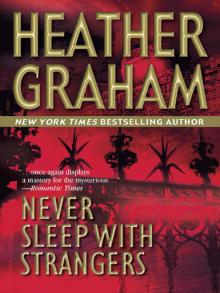 Never Sleep With Strangers
Never Sleep With Strangers Eden's Spell
Eden's Spell A Magical Christmas
A Magical Christmas Forever My Love
Forever My Love King of the Castle
King of the Castle Night Moves (60th Anniversary)
Night Moves (60th Anniversary) The Island
The Island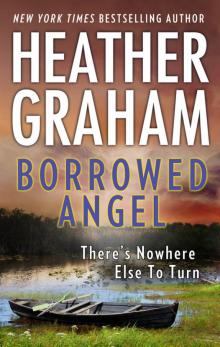 Borrowed Angel
Borrowed Angel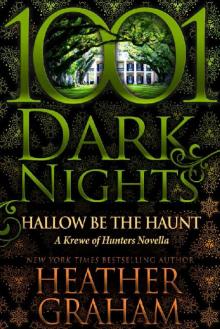 Hallow Be the Haunt: A Krewe of Hunters Novella
Hallow Be the Haunt: A Krewe of Hunters Novella Why I Love New Orleans
Why I Love New Orleans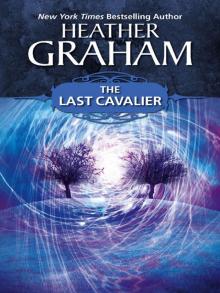 The Last Cavalier
The Last Cavalier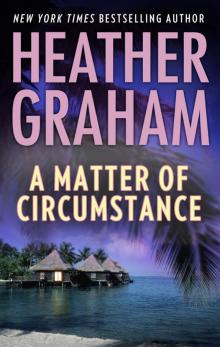 A Matter of Circumstance
A Matter of Circumstance Heather Graham's Haunted Treasures
Heather Graham's Haunted Treasures Tempestuous Eden
Tempestuous Eden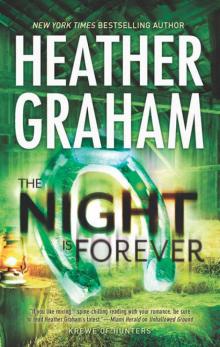 Krewe 11 - The Night Is Forever
Krewe 11 - The Night Is Forever